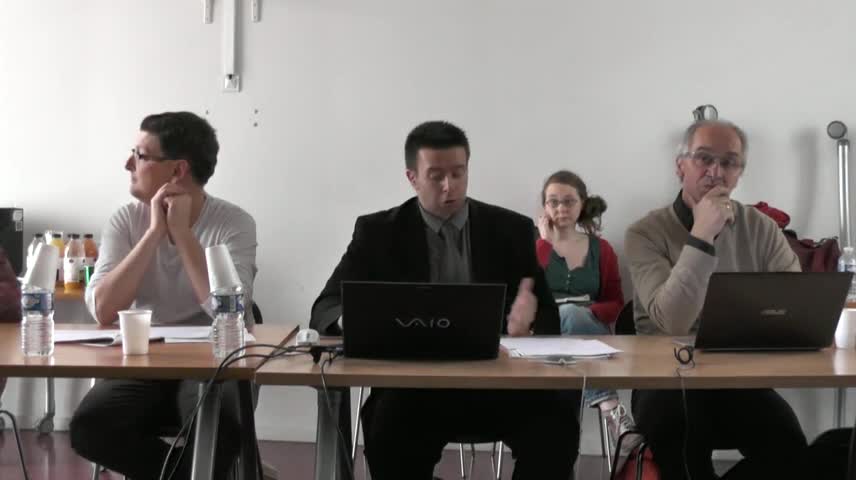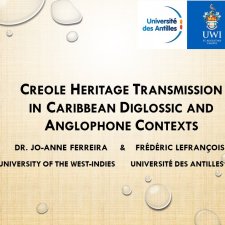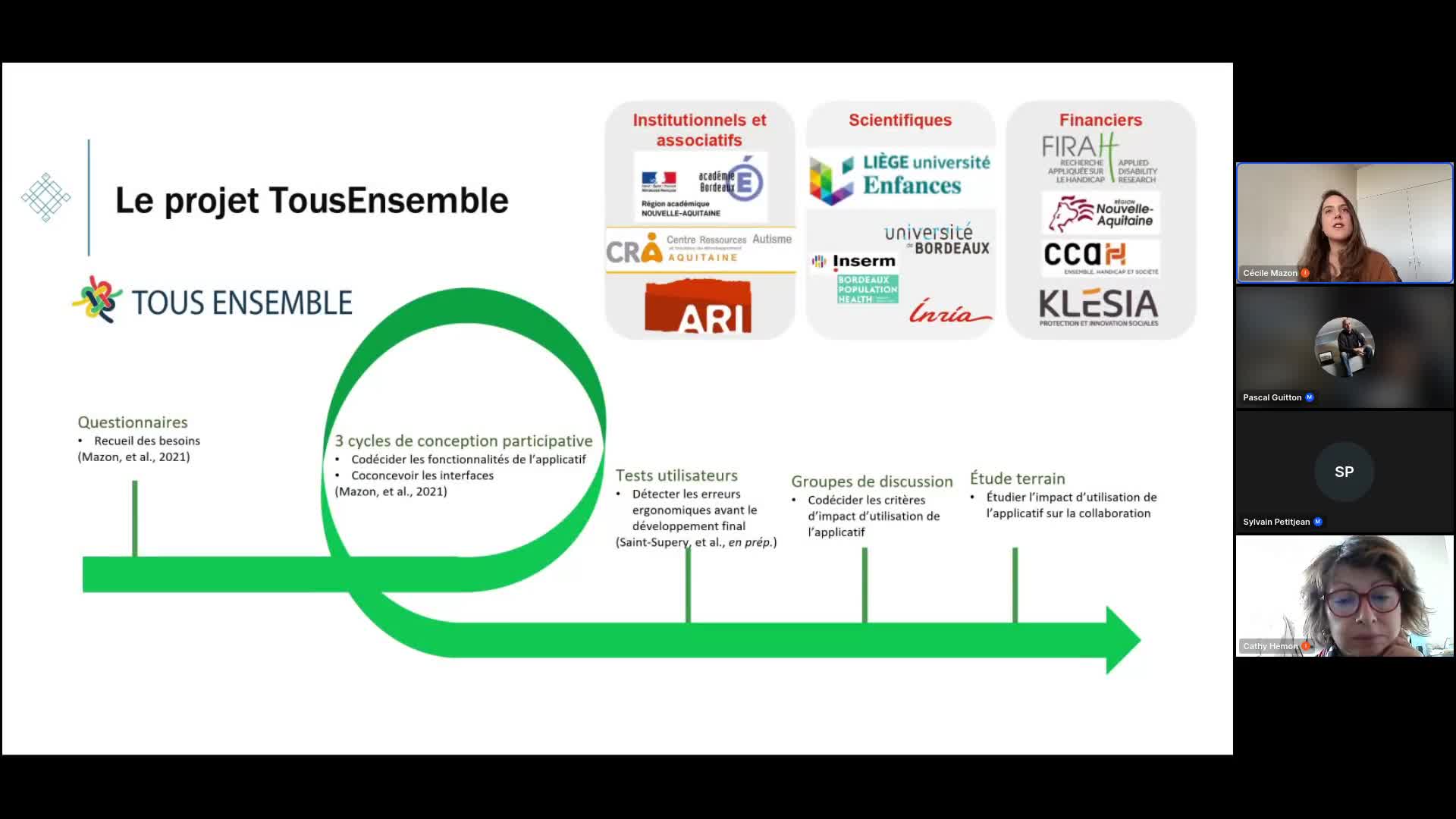Chapitres
Notice
Transformation in teaching and learning - 01 - English
- document 1 document 2 document 3
- niveau 1 niveau 2 niveau 3
Descriptif
A conference proposed and organised by Cned, DMS and The Open University.
Session chair : Ursula STICKLER
Covid crisis management in higher education in France: the case of distance learning
Speaker : Melpomeni PAPADOPOULOU
Co-author : Eva-Maria THUNE
From the classroom to a MOOC. University teachers' experiences compared
Speaker : Jane JOHNSON
Co-author : Carmelo CARUSO
Thème
Documentation
Covid crisis management in higher education in France: the case of distance learning
This paper proposes an autobiography of the experience of lockdown. More specifically, I will analyze the training practices and distance coaching that have been set up by the professor researchers of a French department of educational sciences. The analysis of my experience as a university teacher, as well as the observations and discussions with colleagues in the department during the lockdown, will allow me to work on distance education during the Covid-19 pandemic. The experiences during Covid-19 will provide some insight into the evolution of the role of new technologies in adults’ training. Following the presentation of the Covid-19 context in Greece and France, I will focus on the transformations in the academic world. I will first treat the implementation of distance learning within my team and the knowledge acquired in this particular context. I will conclude with a reflection on these transformations at the global level.
-------
Cet article propose une autobiographie de l'expérience de l'enfermement. Plus précisément, j'analyserai les pratiques de formation et d'accompagnement à distance qui ont été mises en place par les enseignants chercheurs d'un département français de sciences de l'éducation. L'analyse de mon expérience d'enseignante universitaire, ainsi que les observations et discussions avec les collègues du département pendant le lockdown, me permettront de travailler sur la formation à distance pendant la pandémie Covid-19. Les expériences vécues lors du Covid-19 permettront de comprendre l'évolution du rôle des nouvelles technologies dans la formation des adultes. Après la présentation du contexte du Covid-19 en Grèce et en France, je me concentrerai sur les transformations dans le monde universitaire. Je traiterai d'abord de la mise en place de la formation à distance au sein de mon équipe et des connaissances acquises dans ce contexte particulier. Je terminerai par une réflexion sur ces transformations au niveau mondial.
From the classroom to a MOOC. University teachers' experiences compared.
This article explores the experience of contributors to a MOOC designed mainly for university students. Following the Covid pandemic, university lecturers have been forced to adapt their traditional courses and lecture style in order to continue teaching. This has involved a sudden shift to video conferencing platforms and the transformation of the format of learning objects. Teaching staff have rapidly had to become familiar with new technologies and teaching strategies. However most had never been involved in creating asynchronous online courses. A departmental research group designed a MOOC which will award university credits to users completing it. An initial survey to assess willingness to be involved revealed considerable interest among teaching staff, with over 30 people (including almost 50% of the department lecturers) proposing content. Throughout the design and production process, the drop-out rate remains low. Teaching staff remain keen to contribute to the MOOC. We hypothesize that the recent disruption caused by the pandemic has meant that teaching staff are more open to new methods of teaching, and this will affect their approach to the design process in the future. Through the use of surveys to evaluate contributors’ attitudes, experience and knowledge, we focus on the connections between traditional F2F teaching, online teaching and asynchronous teaching via MOOC, as well as highlighting lessons for both contributors and organisers.
Dans la même collection
-
Transformation des modes d’organisation du travail des enseignants, étudiants et personnels de sout…
La perception du numérique en pédagogie universitaire aujourd'hui, entre transformations et permanences : résultats d'une enquête à l'Université de Strasbourg. / Ingénieur pédagogique et numérique en
-
Transformation in teaching and learning - 02 - English
GiacosaAntonellaLuporiniAntonellaZhaiYumingNamYunjungWolfendenFredaExploring the Design and Application of an Intelligent French Dictation Platform. / Legacy and Lessons from the Emergency Online Teaching and Assessment in Language Courses. / Ragazzi, can you hear me
Sur le même thème
-
"Les nouvelles technologies de l'information et de la communication, une réelle plus-value pour la …
MozolPatrickECLIPS est un programme de recherche de l’université François-Rabelais de Tours (UMR CITERES et EA LERAP), financé par la Région Centre, qui réunit des chercheur-e-s en sociologie, droit et sciences
-
Ouverture de la journée d'étude et présentation de la plate-forme BEPEP
Ouverture de la journée d'étude et présentation de la plate-forme BEPEP
-
Regards scientifiques sur le tutorat : résultats d’une recherche doctorale
Cette conférence a permis de mettre en lumière aussi bien les effets en termes d'insertion et d'affiliation pour les néo-étudiants que le processus de développement de pratiques d'accompagnement et de
-
Creole Heritage Transmission in Caribbean Diglossic and Anglophone Contexts
LefrançoisFrédéricFerreiraJo-Anne S.BélaiseMaxCommunication presentée lors de la journée d'étude “Problématiques d’éducation en sociétés crécoles. Perspectives de recherche”, Université des Antilles, Campus de Schoelcher, le 27 mars 2024.
-
Enseignement agricole et perspectives inclusives
L’enseignement professionnel agricole a des atouts à faire valoir dans la perspective d’une visée inclusive
-
Personal data privacy
KrummJohnConférence dans le cadre du cycle "Paris IAS Ideas". Ces présentations courtes marquent le début des résidences d'écriture d'un mois au cours desquelles nos chercheurs invités rédigeront un article
-
Autisme et numérique : enjeux pour l'enseignement en ligne
MonthubertBertrandAutisme et numérique : enjeux pour l'enseignement en ligne avec Bertrand Monthubert, Directeur d'Atypie-Friendly, président du Conseil National de l'Information Géolocalisée, d'Ekitia et OPenIG
-
Intérêt du partenariat Parents-Professionnels dans l’Education Inclusive : Apport des méthodes part…
MazonCécileHemonCatherineLes enfants et adolescents avec troubles neurodéveloppementaux, et notamment avec un TSA (Trouble du spectre de l’autisme) rencontrent encore de grandes difficultés à être scolarisés en milieu
-
L'hybridation dans l'enseignement supérieur : injonction ou besoin ?
El HoyekNadyConférence organisée par le Collège sciences et technologies de l'Université de Bordeaux pour faire un état des lieux de la recherche sur les effets de l’hybridation et les conditions de sa bonne mise
-
RGPD et EAD
TessierJean-LucRGPD et EAD avec Jean-Luc Tessier, délégué à la protection des données, Université de Lille
-
Ouverture de l'Université d'été
Mauguin-HelgesonMurielleDarrieussecqMarieOuverture de l'Université d'été
-
Enseignement spécialisé et éducation nouvelle : les ressorts historiques d'une relation enchevêtrée…
MazereauPhilippeLavilleMatthieuEnseignement spécialisé et éducation nouvelle : les ressorts historiques d'une relation enchevêtrée


















